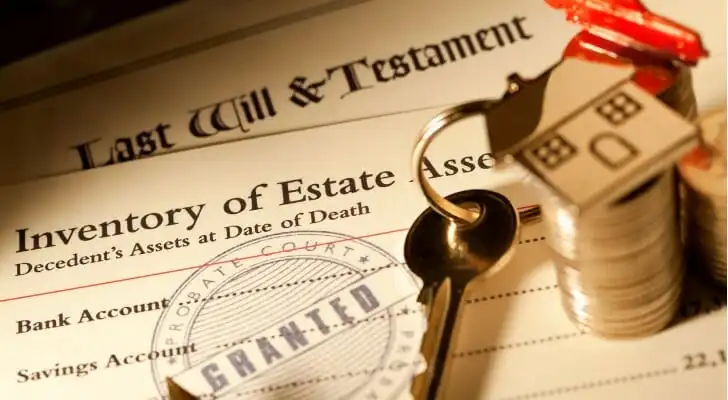Individuals often list multiple people as heirs of real estate or other tangible property. Unlike liquid assets like money or securities, which are relatively easy to divide among heirs, dividing properties can be more complex. One option is to refinance an inherited property and buy out the heirs associated with that property. However, there are number of steps you’ll need to follow in order to make this happen. If you have questions about your situation, consider speaking with a financial advisor.
What It Takes to Refinance an Inherited Property
The transfer of ownership from the deceased to their heirs will depend on the mortgage of the home they are transferring. When a homeowner dies, the home is added to their estate. If there are no outstanding debts, liens or loans tied to the home, then the heirs will receive the property free and clear.
However, if there is an outstanding mortgage balance on the home, the debt must be cleared before the heirs can receive the property. Essentially, the heirs will have to pay off the loan amount before the property is transferred to them.
If there is an heir who wants to own the property in its entirety but doesn’t have the funds to buy out the other heirs, they may have the option to choose a cash out refinance. The heirs can decide collectively how much each heir will receive before the home is refinanced.
Generally, refinancing a property isn’t as simple as getting a mortgage since the home is usually in the name of the estate or trust. In many cases, banks or financial institutions will not refinance to a borrower who is not on the title of the home. Most banks or financial institutions don’t want to refinance an inherited property.
How to Refinance an Inherited Property to Buy Out Heirs

Private lenders or hard money lenders usually have experience and understand how to refinance an inherited property to buy out heirs. Estate loans, probate loans, inheritance loans, irrevocable trust loans and estate inheritance loans are some of the common loans you may see when handling this matter. Even though there are many different names for this type of loan, they essentially offer a cash-out refinance.
With one of these loans, the private lender will loan the money to the estate or trust and then the heir who wants full ownership will take over the loan. The heirs who don’t want the property will then receive the proceeds from the loan. Keep in mind, private lender loans tend to have higher interest rates than conventional lenders. But, with the higher cost, they can offer more flexibility and may approve the loan faster than a conventional institution.
After the refinancing process is complete, the estate will transfer the title to the heir. Then, the heir can apply for a long-term loan with a potentially lower interest rate from a conventional lender.
Other Options for Managing a Real Estate Inheritance
If this process seems daunting and too complex, you have other options. One option is to keep the home so that all the heirs can enjoy it for years to come. Since each heir has equal ownership of the property, you may be able to split your time equally. If there’s an outstanding mortgage balance, make sure you and the other heirs determine how to pay the mortgage.
You could also decide to rent or sell the property. If you decided to rent the property someone would have to take over the responsibility of property management and become the landlord. If you decide to sell, you may be able to split the proceeds equally and walk away. Each decision comes with its own set of barriers, so make sure all heirs are on the same page when deciding what to do with the home.
In some cases, the heirs may disagree about what to do with the home. If this happens, you may have to take the matter to court and let a judge decide. If the judge orders a sale, a third party may assist with the sale of the property. That, however, could reduce the amount that each heir receives from the property’s sale.
Bottom Line

Refinancing an inherited property is one way to distribute its value among all heirs. However, it can be extremely complex and expensive if you’re not careful. That’s why you may want to explore your other options before moving forward with this financial decision. Also, all heirs must be on the same page. Make sure you get all your decisions in writing or consult with an attorney.
Tips on Refinancing Inherited Property
- Consider talking to a financial advisor about refinancing an inherited property. Finding a qualified financial advisor doesn’t have to be hard. SmartAsset’s free tool matches you with up to three financial advisors who serve your area, and you can interview your advisor matches at no cost to decide which one is right for you. If you’re ready to find an advisor who can help you achieve your financial goals, get started now.
- If you decide to refinance your inherited property, you’ll have to find a suitable mortgage lender. You can find out how mortgage lenders operate by reading reviews.
Photo credit: ©iStock.com/stocknshares, ©iStock.com/RichLegg, ©iStock.com/Merydolla
